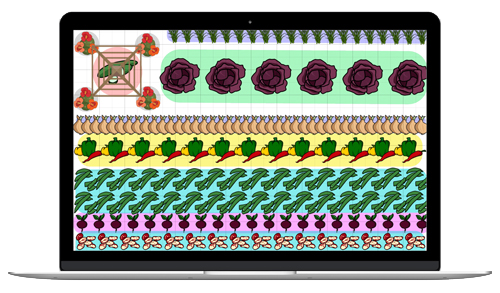
DIY Potting Soil Recipe to Save Money
The Almanac Garden Planner - Use It Free for 7 Days!
Plan your 2025 garden with our award-winning Garden Planner.
ADVERTISEMENT
Great article, except for the sand used.
Typically, you'd want to go for a course sand. Fine sand fills the tiny gaps, working against the drainage ingredients.
I normally make my potting soil as below and it has given good results throughout.
1/3 coir 1/3 yard compost and 1/3 garden soils or soil and sand mixed equally. I also heat soil to 60 deg C for about 20 minutes to kill unwanted Organics including seeds to sterilise. It is also advised to sterilise the vermicompost as above, if it is from unknown source. Also it is better to wash the coir 2 or 3 times to remove its acidic nature and dry it well. I also add a dash of oil cakes of neem, peanut and sesame seeds. Adding phospho-bacterium and Trichoderma viride helps in providing microbes and fungal resistance to saplings/seeds. Hope this helps.
My recipe for soil includes screened mulch, egg shells, coffee grounds, fireplace ashes and finely shredded paper mixed in a 50 gal drum
Please inform your readers of the negative environmental effects of peat moss and promote sustainable alternatives instead, like coconut coir.
Peat moss takes tens of thousands of years to form in bogs, then is dug up and put in bags for gardeners in a matter of days. That natural wetland bog environment uses the peat to filter and purify water, and thousands of animal species live in bogs. Draining and digging them up for gardeners is unsustainable and bad for the environment. The bogs will never recover fast enough for more peat to be harvested in the same area, so new bogs must be destroyed all the time. Digging up peat bogs releases massive amounts of CO2 into the atmosphere and peat moss is often exported from poor countries to be shipped to rich countries at non fair-trade prices.
Peat bogs are even known to catch on fire when they are drained, and the peat can burn underground for months on end, releasing tons of smoke, CO2 and other hazardous chemicals into the air.
Consider buying compressed coconut coir online for adding organic matter to soil. Unlike peat moss, coconut coir is completely renewable (it's made from waste coconut shells), and is pH neutral (peat moss is acidic). It ships in small cardboard boxes, which is better for the environment than giant plastic bags filled with peat.
You have a responsibility to the Earth and your readers to be informed about these types of concerns.
Good to know about the peat moss!
Please note and proceed with caution: "Toxicity to Cats: Coconut coir itself is not typically toxic to cats, but it can cause gastrointestinal distress if ingested. Cats may be attracted to the texture and taste of coir, which can lead to ingestion and subsequent health issues. In severe cases, it may even lead to intestinal blockages, requiring immediate veterinary attention."
Sorry
Disagree with the anti peat moss poster
Peat is sustainable as MORE is replaced by nature each year than us harvested by man.
Yes coco is a by product of the coconut industry; the same industry that destroys more forests every year to plant more coconut trees.
Get the facts
Don't be lazy, read ALL available information; NOT JUST THE INFORMATION THAT YOU AGREE WITH
Everyone with the space to do it SHOULD BE COMPOSTING
forget about fancy silly tumblers
Just get some large used nursery pots
10-15 gallon
Grind up your material
Fill the pots 3/4 full
Stack the pots one atop the other 3-5 pots high in a shaded location
Toss some worms in the top most pot
Add water to the top pot until you see it running out of the bottom pot
Every 2-3 weeks check the moisture in the pots
Don't let them dry out
Every 1-2 months; dump the contents of each pot into another pot; this is the easiest way EVER to turn your compost
Children and old people should be able to lift a 10 gallon container 3/4 full of compost!
You should notice that the compost is breaking down
Depending on the size of the pieces that started with it should take 4-6 months to be ready to use
Handy to make a screen frame out of 1/2 square hardware cloth and some scrap wood that fits over the top of a wheel barrow to screen the finished compost
Just put the pieces that won't pass through the screen back in the pots and give this material for time to break down
I have tried every possible method of making backyard compost over 50 years
This is the absolute easiest way to make nice diy compost with minimal work
Good luck
Thanks that was a very helpful as well
No one sells real peat bog moss anymore, relax. Nearly everything sold in the us market as peat is simply composted lumber mill waste from canada. Yes it's a scam. But it's much less of a scam than pretending that mass monoculture coconut farms destroying jungle and shipping the discards 5,000 miles on diesel ships is carbon neutral.
Hi Thomas, yes, you still can find peat moss as an ingredient in bagged soil & potting mixes. I had to spend a little time looking last year to avoid buying soil without it.












